If you are new to the idea of homesteading and are unsure of what it is or where to go to find the best and most practical information about it, then this article is for you. Below, we detail what homesteading is, and why it might benefit you, and we will look at 8 key books that, once used, will significantly increase your experience as a homesteader in a positive way.
Table of Contents
What is Homesteading?
You might have already heard of homesteading without realising it. The ideas of living self-sufficiently or living ‘off the grid’ closely align with homesteading and what it represents. The best way to describe homesteading is that you are living sustainably and self-sufficiently, so you are relying on yourself and the things you grow and produce to keep you fed.
Homesteading is a family activity requiring a large garden space where vegetables/wheat/fruits can be grown and animals can graze.
In 1862 a ‘Homestead Act’ was introduced into the US, whereby public land in the western part of the United States was granted to any citizen willing to settle on and farm the public land for a minimum of five years. Canada passed a similar law in 1872 known as the Dominion Laws Act.
Why Homestead?
Your first thought when reading about homesteading is likely to be, ‘why on earth would anyone do that?’ However, we are human, we are derivative of apes, and for millions of years, we lived off of the land; it is in our primal nature to forage and hunt and grow our own food.
We live in a fast food world now where we expect everything in a microwave (instantly), but we don’t want to work for it, the practice of homesteading teaches us valuable lessons about ourselves and what we are capable of.
4 Advantages of Homesteading
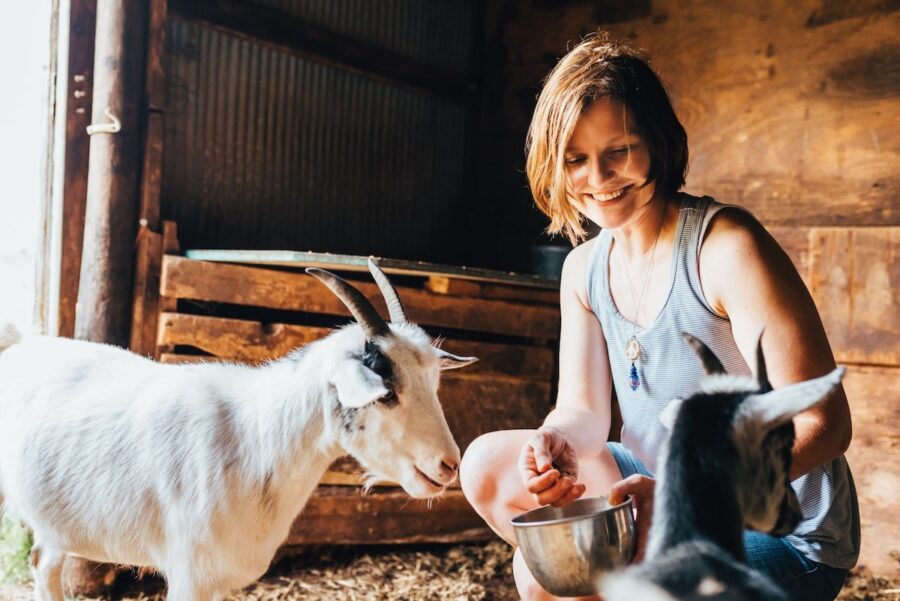
Work Ethic
There’s no greater motivation for work ethic than survival, and realizing that you can’t pay a yard man to plant and harvest all your vegetables means that you and your family are now relying on you! That’s one heck of a motivator right there. On a homestead, if you put in a mediocre amount of work, you’re liable to get little to nothing in return. You’ll quickly realize that without a proper amount of work ethic and determination, you’ll likely not last a full seasonal cycle.
Appreciating Life
We take so much for granted when it comes to supermarket shopping. We look at some chicken breasts or some beef on the shelves and take it for granted, failing to understand that an animal had to die for this to be possible.
When you become a homesteader, you must take the responsibility of killing the animals that will provide the meat with which you will sustain your family. And this is no small task for anyone with a conscience. Killing an animal will almost become a sacred act that will be performed as humanely and quickly as possible. Both for the animals’ sake and for yours, because no one with a soul wants to watch something suffer in vain.
Heightened Awareness
If you had to guess what signs of nature indicate when it’s going to rain or you’d lose all of your money how many of you would be able to hold on to a single penny? Not many I’m sure. Because these skills of awareness and observation our ancestors had were lost along the way.
Working and living on a homestead will allow you to regain that lost connection and put you a step ahead of others who blankly look at the sky and hope for answers. As someone who will have to work with nature, you’ll notice certain behaviours when things are about to happen. Like when cows lay down in herds under a tree, it might rain soon. Building this knowledge and relying on nature to help nurture you
Self Reliance
On a homestead, you have the benefit of relying on yourself to make food and all other resources available. This may sound like a lot of pressure at first, but we also need to realize that you may have paid $8.00 for the seeds to plant your garden, and it will yield enough to pay you back a hundred times over if you do it right. Yes, it is not as instantly gratifying as going into Mcdonalds’ and spending $8 on a shake and some nuggets, but this type of effort pays dividends in the long run.
8 Books to Help you Get Started

Here is a selection of 8 books on homesteading that we think offer the best and widest variety of tips and tricks when it comes to living sustainably and off of the grid. There is a focus on books on raising animals properly because this skill can often take the longest time to learn and master.
The Encyclopedia of Country Living by Carla Emery
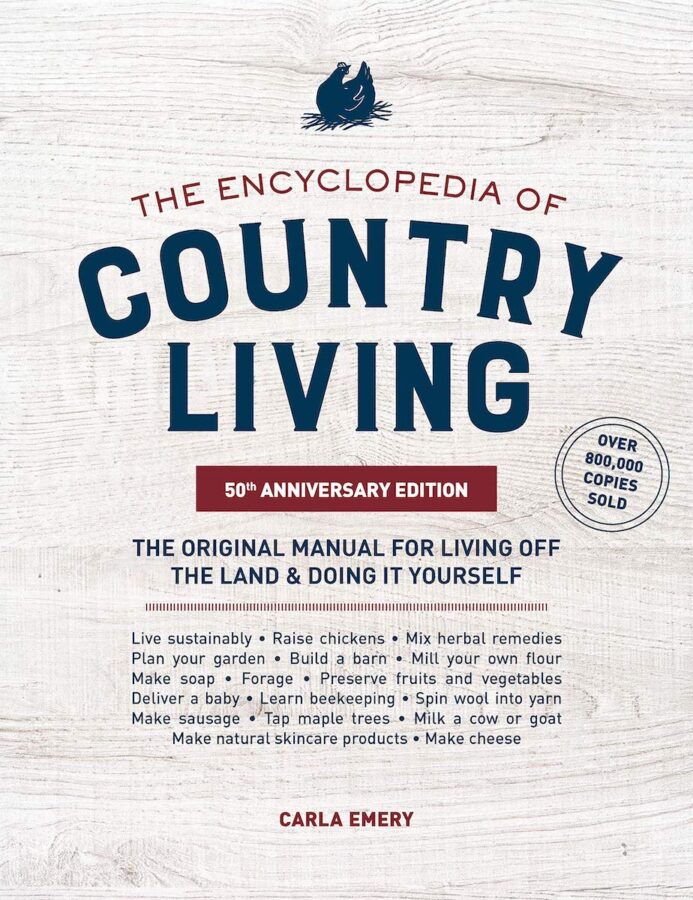
Emery is an expert in the art of homesteading, and in this 900+ page encyclopedia, she details the best ways to buy land, garden efficiently, and prepare/grow your own food. With over 3000 5-star reviews to its name on Amazon, the book is the ultimate guide to foraging, growing, surviving, and a host of other fun and practical things that we are sure you will love. For 50 years it has been the homesteading bible, and we are sure that this reputation and legacy will continue.
Attainable Sustainable: The Lost Art of Self Reliant Living by Kris Bordessa
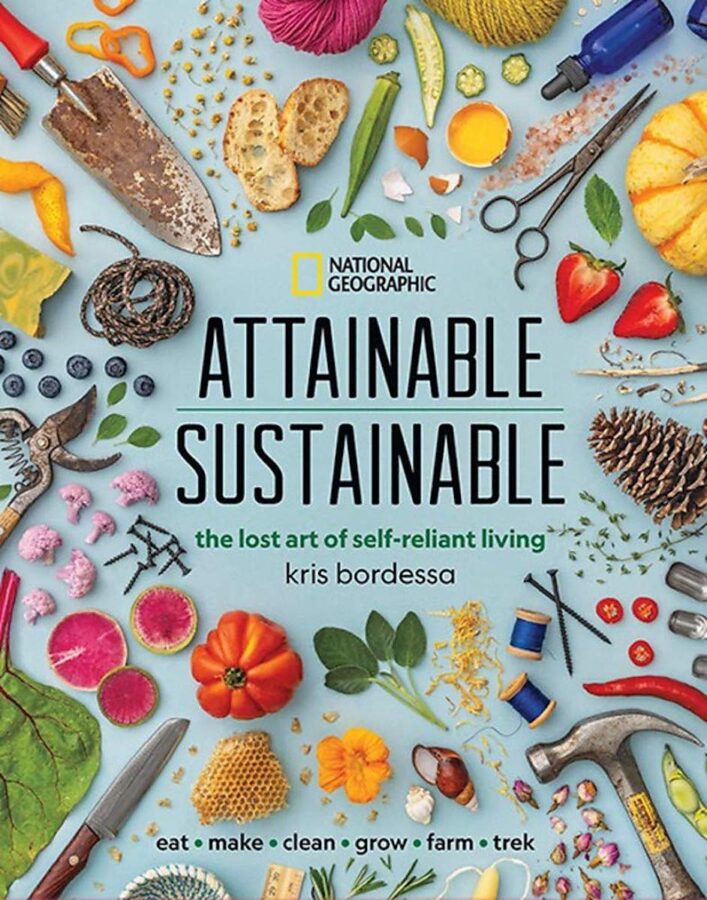
Regardless of where you live, city, suburb, or way out in the middle of nowhere, here’s a book that helps you achieve a self-reliant way of living. In this 320-page guide, Kris Bordessa offers tried and true advice that we are sure will work wonders with any homestead, helping you to live in a self-sufficient way.
You can expect to read about delicious recipes, natural remedies, DIY crafts, and step-by-step directions for outdoor projects. These projects include foraging for wild edible plants, cooking using cast iron, fruit and veg growth and proper preparation.
The Homesteading Companion by Jennifer Poindexter
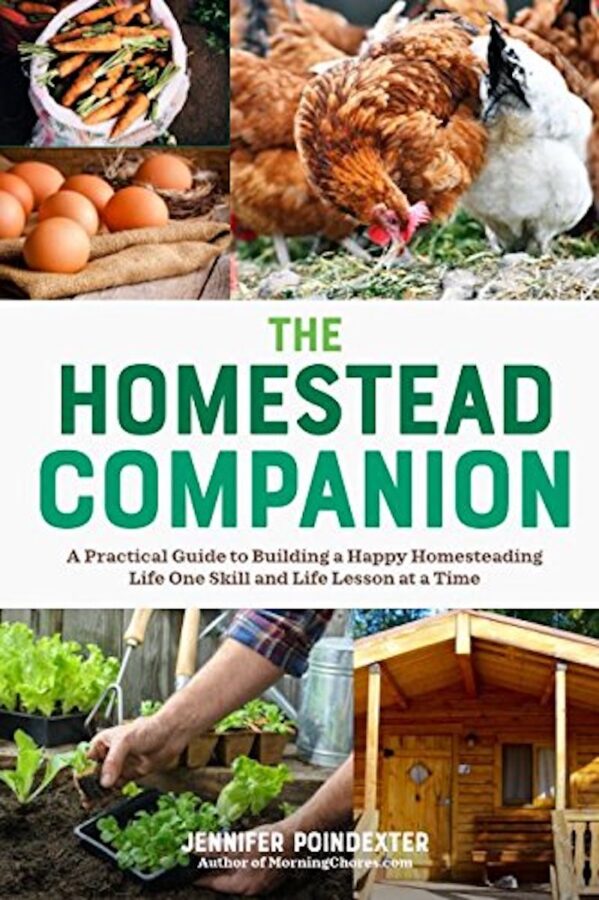
Want to live the dream of being an efficient homesteader despite your current living condition? If so, then you will love the Jennifer Poindexter-written ‘Homestead Companion’, which teaches you the basic homesteading skills of growing and preserving your own food, raising farm animals, and sustainably saving your money while doing so. One chapter even covers homesteading when you have no money, so if you start from scratch, there is something here for you too.
The Skilful Forager by Leda Meredith
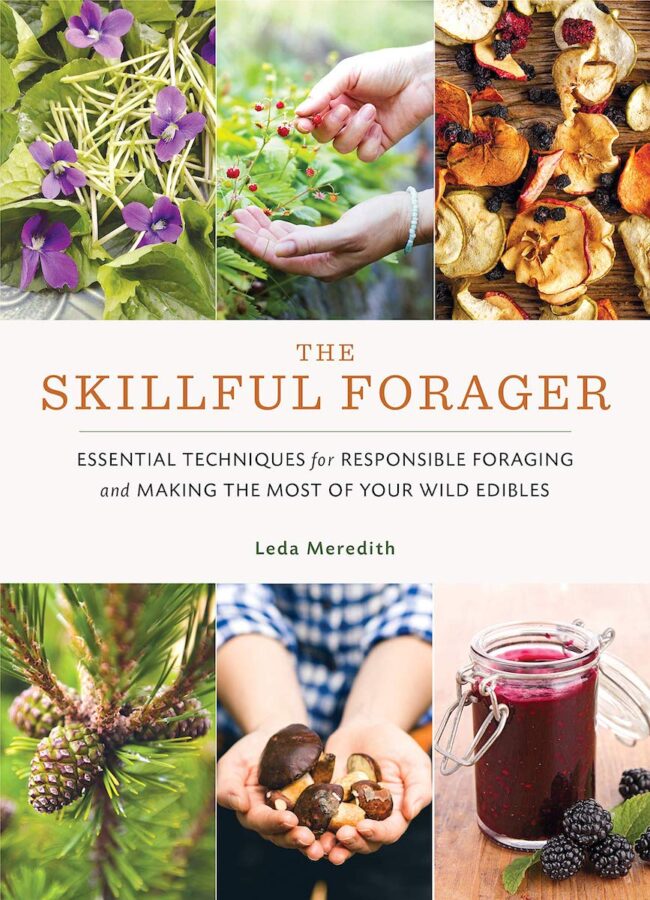
Perfect for learning how to forage in all areas, this book will help you identify wild edibles as well as when the best time to pick certain edibles are as well as pick the best of the best.
From fungi and barks to leaves and berries, this book contains a ton of information to find and identify wild edibles and create delicious recipes with your finds.
The Backyard Homestead Guide to Raising Farm Animals by Gail Damerow
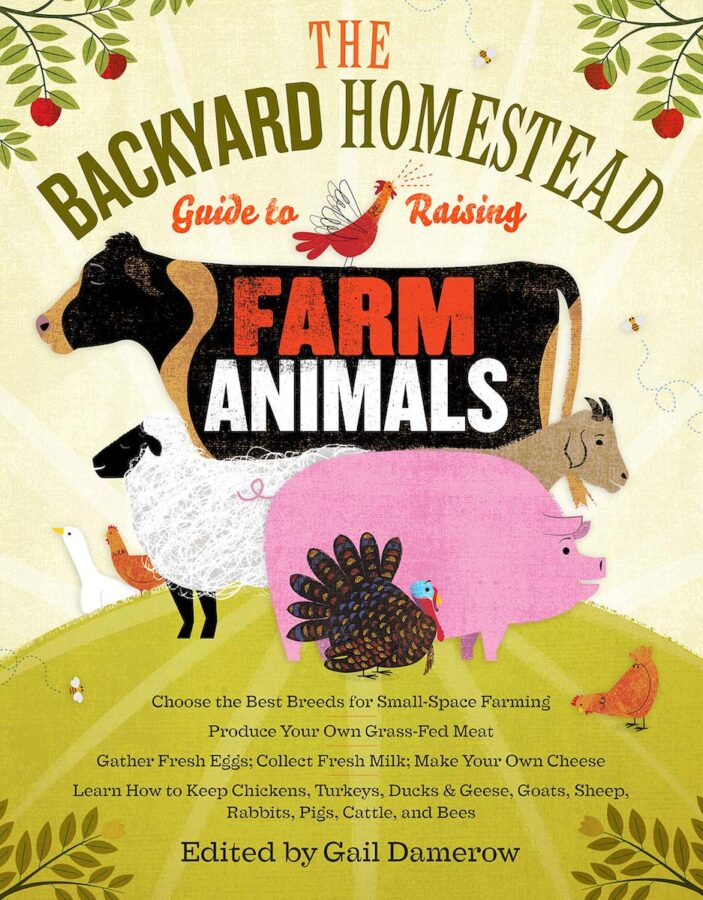
This is a great resource to use as a general guide to animal husbandry. Everything from dairy cattle to dairy goats, grass-fed meat production, raising chickens and rabbits, and even bees are covered in this book. This is a great book for raising your own backyard animals, and then you can look into other breed-specific books for a more in-depth guide once you’ve covered the basics in this book. Although quite specific in its approach, it is still a great option.
The Complete Book of Home Preserving by Judi Kingry
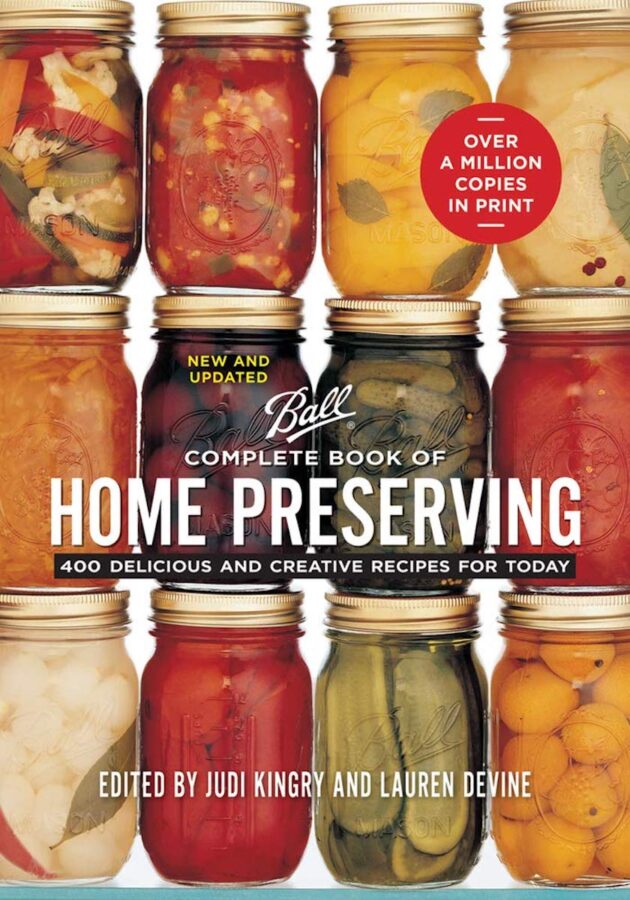
Food preservation is a big part of the homesteading journey and can be a bit overwhelming. This book is a must-have to get started on your canning journey. Find tried and true recipes and techniques to preserve your high-acid foods via water bath canning and your low-acid foods via pressure canning, and you’ll know that the recipes are tried, tested, and safe, giving you peace of mind while you begin your journey.
The Self Sufficient Backyard by Ron & Johanna Melchiore
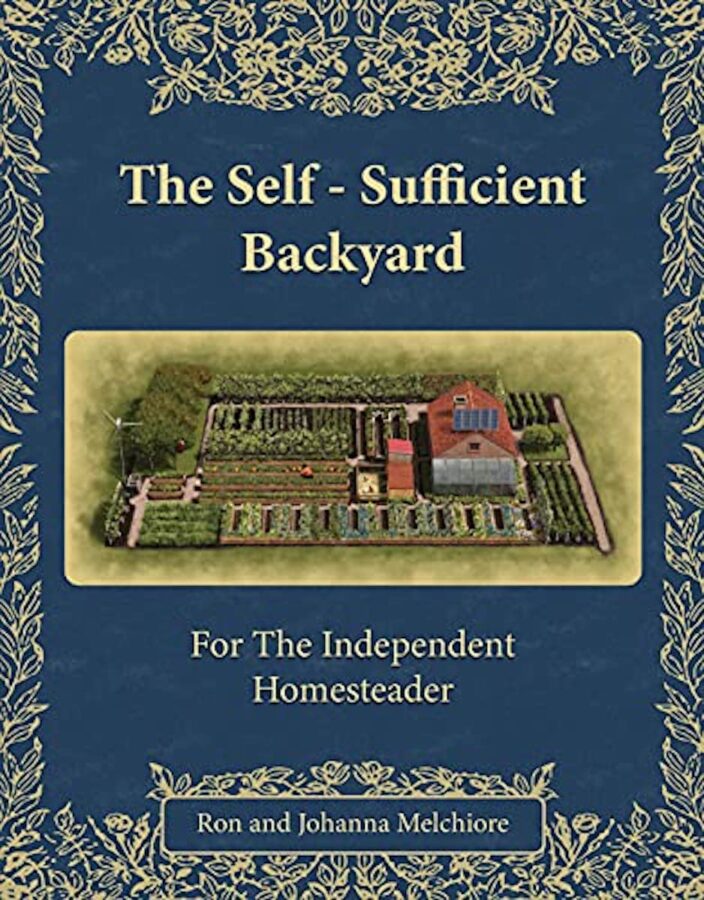
For almost 50 years, Johanna and Ron Melchiore have been living sustainably, so this guide is the perfect way to learn how to do things the right way, using methods that have been tried and tested and that last. From making natural remedies, to heating your house to generating electricity, this guide teaches you how to do it all.
The Beginners Guide to Raising Small Animals by Carlotta Cooper
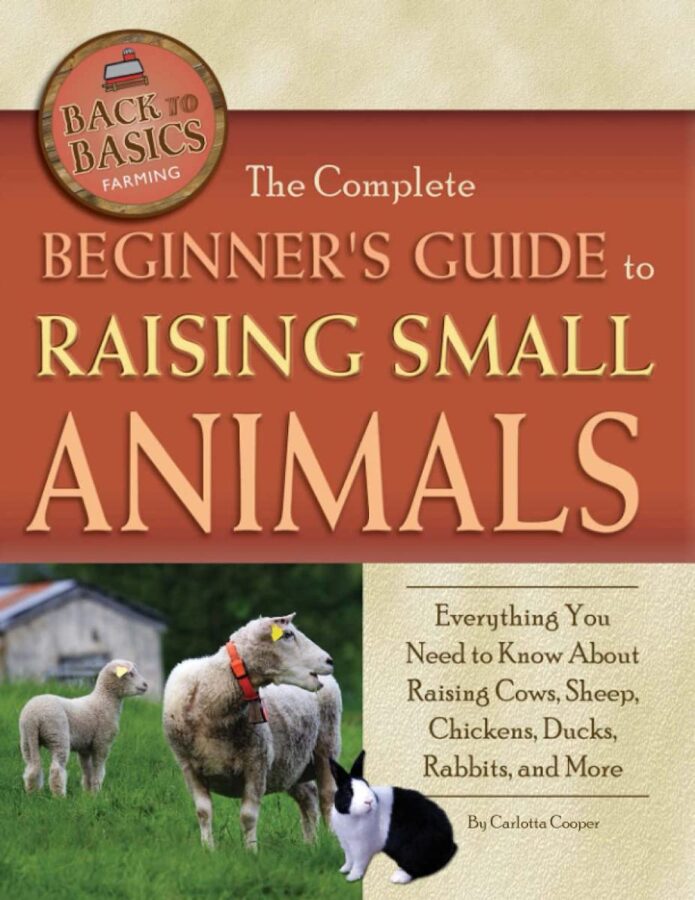
This book teaches you how to raise any kind of domestic or farm animal that you can think of. It is the perfect step-by-step guide that will bring you right back to basics. This guide will teach you everything from egg incubation to maintaining poultry health. If you are a beginner, then this guide will take your ability to raise and maintain a happy and healthy farm life to the next level.
FAQs
Homesteading is a lifestyle of self-sufficiency. It is characterized by subsistence agriculture and home preservation of food and may also involve the small-scale production of textiles, clothing, and craftwork for household use or sale.
Modern homesteading puts you in touch with all that history. In some ways, you can understand and appreciate the struggle that went into all of it. It is also a fun challenge to set for yourself.
For obvious reasons, a toolbox is a must-have in your homestead. You wouldn’t want to keep running back and forth to the tool shed, searching for small items and materials you need.
Make sure your homestead has the proper supplies and equipment in the kitchen to make cooking meals from scratch easier and quicker. For those who want to homestead off-grid or in preparation for a downed power grid, food canning and preservation equipment and hand and manual tools and equipment should take priority.
If you want quality items without breaking the budget, consider yard and garage sales, Craigslist, and even Goodwill or Salvation Army thrift stores to buy your homesteading equipment. Many items listed in the books referenced above can be found second-hand for a great price.

